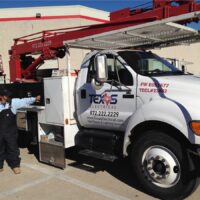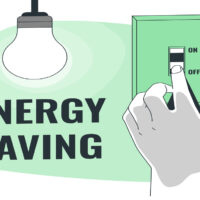Top 10 electrical safety guidelines for a safe home environment include installing ground fault circuit interrupters (GFCIs) and ensuring proper appliance grounding. Regular inspection of cords and avoidance of overloading sockets are also crucial.
Electrical safety is paramount in maintaining a secure home. Consequently, homeowners must familiarize themselves with practices that safeguard their residences from electrical hazards. Electrical mishaps can lead to fires, injuries, or even fatalities, which underscores the significance of adhering to preventive measures.
To contribute to a safer living space, individuals should integrate these guidelines into their daily routines. Awareness and proactive steps toward electrical safety can make a significant difference in preventing accidents. This approach not only secures the well-being of inhabitants but also contributes to the longevity of the home’s electrical system. Understanding and applying these safety measures fosters a protected, hazard-free environment for all household members.
Introduction To Electrical Safety At Home
Electricity powers our homes and lives, but it can also be a source of danger. Keeping our homes safe requires knowledge and vigilance. Understanding the basics of electrical safety is key to avoiding accidents and ensuring that our living spaces remain secure and comfortable. Through the following guidelines, protect your home from potential risks associated with electricity.

The Importance Of Electrical Safety
Safety should always be a priority, especially when it involves electricity. Neglecting electrical safety can lead to severe injuries or even fatalities. Moreover, electrical fires caused by improper use or maintenance can threaten your home. Taking the right precautions helps to prevent these disasters and keeps everyone safe.
Common Hazards In Household Electrical Systems
Hazards often lurk in plain sight within our homes. Overloaded power outlets, frayed wires, and faulty appliances are common threats. Use the following table to identify and mitigate such hazards:
| Hazard | Description | Prevention Tips |
|---|---|---|
| Overloaded Outlets | Plugging too many devices into a single outlet | Use power strips responsibly, avoid daisy-chaining |
| Frayed Wires | Damaged or exposed electrical wiring | Regularly inspect cords, and replace damaged ones immediately |
| Faulty Appliances | Appliances that malfunction or behave unpredictably | Have appliances serviced, refrain from DIY repairs on electrical components |
Regular Inspection Of Electrical Equipment
Maintaining a safe home environment requires attention to the condition of electrical equipment. Regular inspection is key to preventing accidents and ensuring the safety of residents. Not only does it safeguard against potential hazards, but it also ensures that any wear and tear on your appliances and wiring is addressed promptly.
Checking For Damaged Wires And Plugs
To minimize risks, check cords and plugs systematically. Look for:
- Frays or cuts in cables
- Burnt marks on plugs
- Loose connections
- Cords trapped under furniture or pinched
Replace or repair any faulty elements found during the inspection.
The Role Of A Qualified Electrician In Home Safety
For thorough inspections, hire a certified electrician. They can:
- Identify hidden electrical issues
- Recommend upgrades for outdated systems
- Ensure your home complies with safety standards
Always entrust electrical work to professionals for the best safety outcomes.
Proper Use Of Extension Cords
Extension cords are a modern convenience many rely on. But safety is crucial to prevent accidents. Follow these essential guidelines to ensure your home stays safe.
Avoiding Overloading Outlets
Overloading power outlets is a fire hazard. It’s tempting to plug in many devices, but it can be dangerous. Here’s how to avoid it:
- Use one extension cord per outlet. This prevents too much current in one spot.
- Check the wattage ratings. Make sure the total load is less than what the cord can handle.
- Consider power strips with built-in overload protection as an alternative.
Extension Cord Placement And Safety Tips
Safe placement of extension cords is vital. Mishandling can lead to tripping or fire risks. Here are key placement and handling tips:
- Avoid running cords under carpets or across doorways.
- Ensure cords do not dangle from counters, tempting children or pets.
- Inspect cords regularly for damage. Replace them if they show signs of wear.
| Do’s | Don’ts |
|---|---|
| Unplug when not in use | Plug multiple cords together |
| Use for temporary purposes | Expose to moist conditions |
Always use extension cords wisely to keep your home safe. Initial checks and thoughtful placement make a big difference. Stay secure, stay aware.
Safe Installation Of Electrical Devices
Ensuring the safe setup of electrical gadgets is vital in every home. Incorrect installation can lead to fires, shocks, and other hazards. Let’s delve into a step-by-step guide designed to keep your family safe from electrical risks around the house.
Following Manufacturer’s Instructions
Always read and follow the manual that comes with any electrical device. This guide gives specific details for safe and efficient setup. For clarity, here are key points to consider:
- Check voltage requirements: Ensure your home’s power supply matches the device’s needs.
- Understand the settings: Familiarize yourself with the functions to avoid misuse.
- Use the right tools: Employ tools recommended by the manufacturer for secure installation.
- Account for ventilation: Keep devices in well-ventilated spaces to prevent overheating.
When To Seek Professional Help For Installation
There are instances where hiring a certified electrician is the safest option. Consider calling in a pro:
- New Wiring: When your home needs new wires.
- Complex Devices: For appliances that require heavy or elaborate wiring.
- Frequently Tripped Breakers: If your breakers trip constantly after a new device is plugged in.
- Uncertainty: If you’re unsure or uneasy at any point during installation.
Professionals have the expertise to ensure that your electrical devices are installed safely and up to code.
Childproofing Electrical Outlets
Keeping our homes safe is crucial, especially with curious little ones running around. Electrical outlets are everyday items that pose a hidden danger to children. Taking steps to childproof them can prevent accidents and provide peace of mind. Let’s explore easy and effective ways to childproof these potential hazards.
Using Outlet Covers In Homes With Children
- Outlet covers act as a barrier between children and electrical outlets.
- They come in various types such as plastic plugs and box covers.
- Plastic plugs insert directly into the sockets, whereas box covers encase the entire outlet.
- Choose tamper-resistant outlets for a more permanent solution.
Applying outlet covers prevents kids from inserting objects into sockets. This simple step is an efficient way to reduce the risk of electrical injuries at home.
Teaching Kids Electrical Safety Basics
- Start conversations early about the dangers of electricity.
- Create simple rules like “No touching outlets” or “Ask an adult for help”.
- Use engaging activities, like coloring books, to illustrate electrical safety.
- Always supervise children in rooms where they might access electrical cords or outlets.
Educating kids on electrical safety is as important as installing protective devices. It helps them understand the importance of respecting electricity and empowers them to stay safe.
Handling Electrical Appliances In Wet Areas
Electric shocks and accidents often happen near water. Keep your home safe by learning to handle electrical appliances correctly in wet areas.
Electrical Safety In Kitchens And Bathrooms
Kitchens and bathrooms have appliances near water. This is risky. Use this advice to stay safe:
- Keep appliances away from water. Even a small splash can cause danger.
- Unplug tools not in use. This lowers the risk of shock.
- Dry hands before touching switches or appliances. Wet hands increase shock risk.
- Use dry cloths to clean spills. Never touch appliances with wet rags.
- Inspect cords for damage. Frayed wires can shock you.
Ground Fault Circuit Interrupters (gfcis) For Wet Areas
GFCIs are life-saving devices for wet areas. They turn off power if they sense a fault. Make sure they are installed:
| Location | Recommendation |
|---|---|
| Kitchen outlets | Install GFCIs within 6 feet of water sources. |
| Bathroom outlets | Use GFCIs for all outlets. |
| Outdoor areas | Protect exterior outlets with GFCIs. |
Test GFCIs monthly. This ensures they protect you when needed. Replace them every 10 years.
Respect The Limits Of Your Electrical System
Electrical safety is a vital aspect of maintaining a safe home environment. Knowing the capacity of your home’s electrical system prevents overload and hazards. Following guidelines ensures the wellbeing of your family and home. Pay special attention to the electrical system’s limits. Use appliances responsibly to avoid risk. This section will cover the essentials to respect your electrical system’s limits.
Understanding Your Home’s Electrical Load
Every home has a maximum electrical load it can handle. This limit is crucial to respect to prevent circuit overloads. Consistently exceeding this load can cause fires or electrical damage. Discover your home’s capacity by checking the main circuit breaker. Learn about individual circuit capabilities. Distribute appliance usage accordingly. Monitor the demand your electronic devices place on the system daily.
Important: Consult an electrician if you are uncertain about your home’s electrical capacity.
Managing Multiple Appliance Usage
Using several appliances at once can strain your electrical system. Spread out energy-consuming tasks throughout the day. Refrain from operating too many heavy appliances simultaneously. Implement these tips to manage multiple appliances:
- Stagger usage: Do not run all appliances at the same time.
- Appliance ratings: Stay aware of how much power each appliance uses. Larger appliances like air conditioners, heaters, and refrigerators draw more electricity.
- Use power strips with surge protectors to safeguard against voltage spikes.
Balance energy usage for a safer home. Pay attention to peak hours for electrical use. Aim to use heavy-load appliances outside these times.
Employ energy-efficient devices for added safety and savings. Energy-efficient appliances reduce the strain on your home’s electrical system. They also decrease monthly electricity bills.
By understanding your home’s electrical load and managing appliance use, you greatly lower the risk of overloading your system. This practice keeps your home safe from electrical mishaps. Be aware, be safe, and always respect the limits of your electrical system.
Safe Disposal And Recycling Of Electrical Items
Ensuring electrical safety extends beyond using appliances correctly. Safe disposal and recycling of electrical items are crucial steps to maintaining a safe home environment. Old batteries, phones, and computers can harm both people and the planet. This section highlights the importance of disposing of batteries and recycling electronics responsibly.
Disposing of Batteries and Electronics Responsibly
Disposing Of Batteries And Electronics Responsibly
Used batteries and outdated electronics require special attention. Never throw them in regular trash bins. They contain toxic substances like mercury and lead. These substances can leak into the ground and water, causing harm.
- Locate designated drop-off points for batteries and e-waste.
- Many stores offer recycling programs for old electronics.
- Contact local waste management authorities for proper guidelines.
Docsafe your area’s regulations to ensure safe disposal. Always opt for authorized e-waste recyclers.
Benefits of Recycling Electrical Components
Benefits Of Recycling Electrical Components
Recycling electrical items has multiple benefits. Firstly, it conserves natural resources. Metals recovered can be used anew, reducing the need for mining. Secondly, it supports environmental protection. Proper recycling prevents harmful chemicals from polluting the earth.
| Benefits |
|---|
| Conserves natural resources |
| Reduces greenhouse gas emissions |
| Supports the local economy |
| Saves energy |
Create a positive impact on the planet by recycling. It’s an easy way to support sustainable living. Plus, some components can fetch you a small sum of money when recycled!
Preparing For Electrical Emergencies
Electrical emergencies can happen without warning. Being prepared is key to ensuring these situations don’t turn into disasters. Below are essential guidelines to help avert crisis and maintain a safe home environment.
Knowing How To Use The Circuit Breaker
The circuit breaker is a home’s safety net against electrical surges. Knowing its location and function is crucial. In an emergency, you need to act fast to cut power and prevent further damage.
- Label each switch with the corresponding area of your home.
- Conduct regular checks to ensure they work properly.
- If a switch trips, locate and fix the issue before resetting the breaker.
Having A Fire Extinguisher And Knowing How To Use It
A fire extinguisher is a crucial tool for electrical fires. Fires caused by faulty wiring or overloaded circuits need quick action.
- Keep at least one extinguisher on each floor of your home.
- Choose an A-B-C rated extinguisher which covers various fires.
- Ensure everyone in the household knows the PASS technique: Pull, Aim, Squeeze, and Sweep.
Conclusion: Commitment To Ongoing Electrical Safety
Creating a safe home environment is a continual process. Electrical safety demands regular attention. A little effort goes a long way in preventing accidents. Let’s solidify our safety approach with proactive steps.
Regular Safety Checks And Upkeep
Staying on top of maintenance is crucial. Scheduled check-ups capture potential issues early. Here’s what you should do:
- Inspect wires – Look out for wear and tear.
- Test smoke alarms – Ensure they’re functioning properly.
- Check outlets – Loose outlets need fixing.
| Item | Check Frequency |
|---|---|
| Smoke Detectors | Monthly |
| Circuit Breakers | Annually |
| Electrical Cords | Bi-Annually |
Enlist a certified electrician for a thorough investigation.
Staying Informed On Electrical Safety Standards
Knowledge is power – especially with electricity. Follow these steps:
- Read manuals – Safety instructions for appliances matter.
- Learn codes – National and local codes guide safe installations.
- Stay updated – Safety standards evolve. Keep learning.
Attend community safety programs. Share knowledge with family and friends.
Frequently Asked Questions For “top 10 Electrical Safety Guidelines For A Safe Home Environment”
What Are Common Electrical Safety Tips?
Basic electrical safety tips include avoiding water near electrical appliances, regularly inspecting cords for damage, and ensuring outlets are not overloaded. Always use the correct wattage for light fixtures.
How To Childproof Electrical Outlets?
Childproof electrical outlets by installing tamper-resistant receptacles or using safety caps. These prevent children from inserting objects into sockets, reducing the risk of electric shock.
Can Extension Cords Cause Fires?
Yes, extension cords can cause fires if not used correctly. Avoid overloading them, running them under rugs, or using them as a permanent solution. Regularly check for damage and replace faulty cords immediately.
What To Do During An Electrical Emergency?
During an electrical emergency, disconnect the power if possible and safe to do so. Call emergency services if there’s a fire. Do not touch anyone in direct contact with electricity; instead, cut the power source.
Conclusion
Embracing these electrical safety tips is essential for a secure home. Following guidelines reduces risks and ensures wellbeing. Make them a daily habit, and enjoy the peace of a hazard-free household. Prioritize safety; protect your loved ones and property. Remember, prevention is always better than cure.
Stay safe, stay informed.




